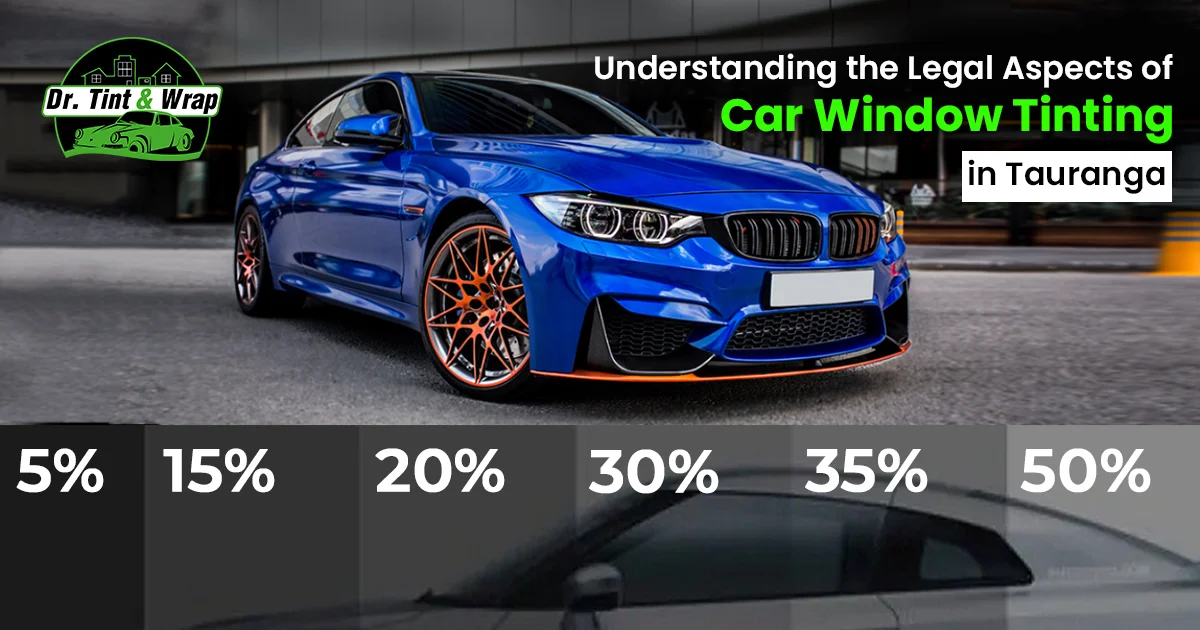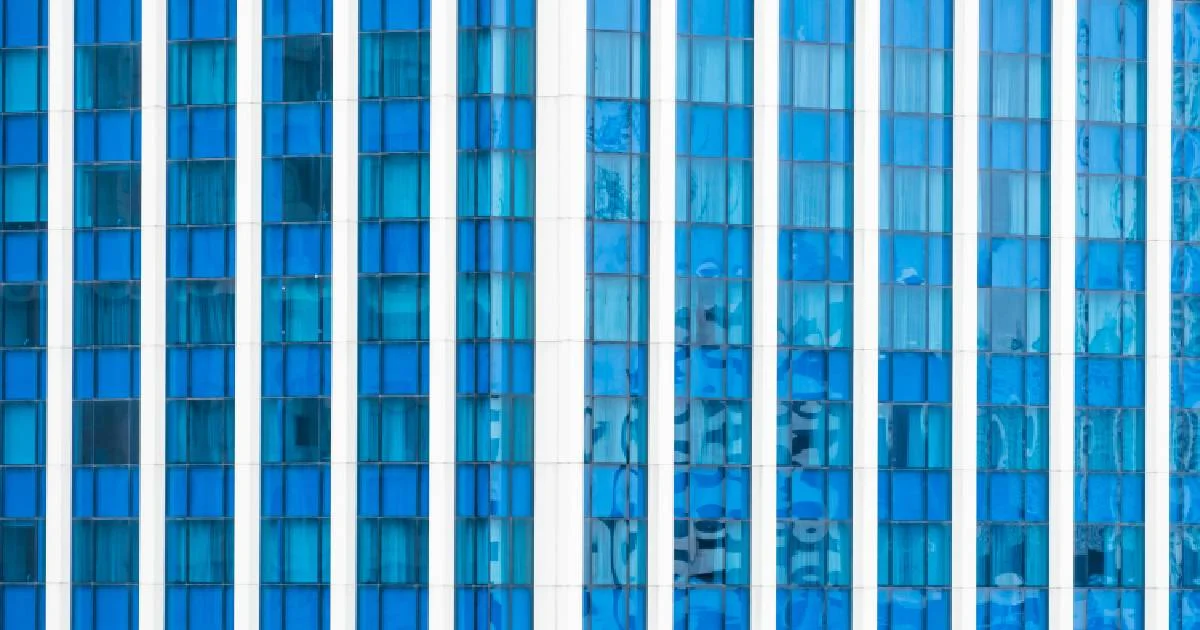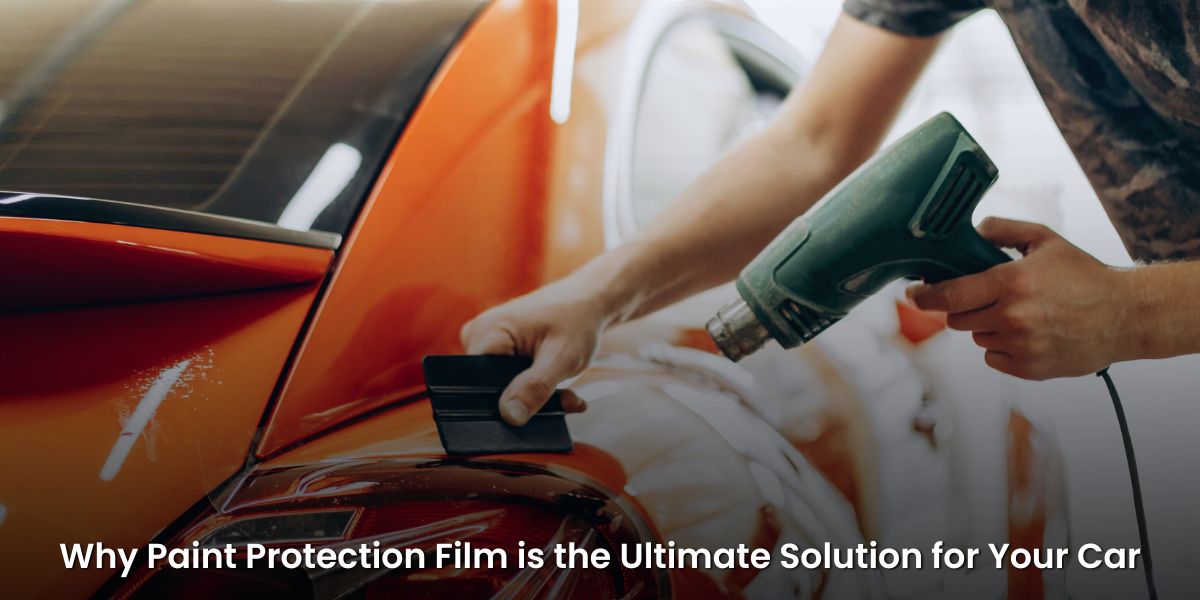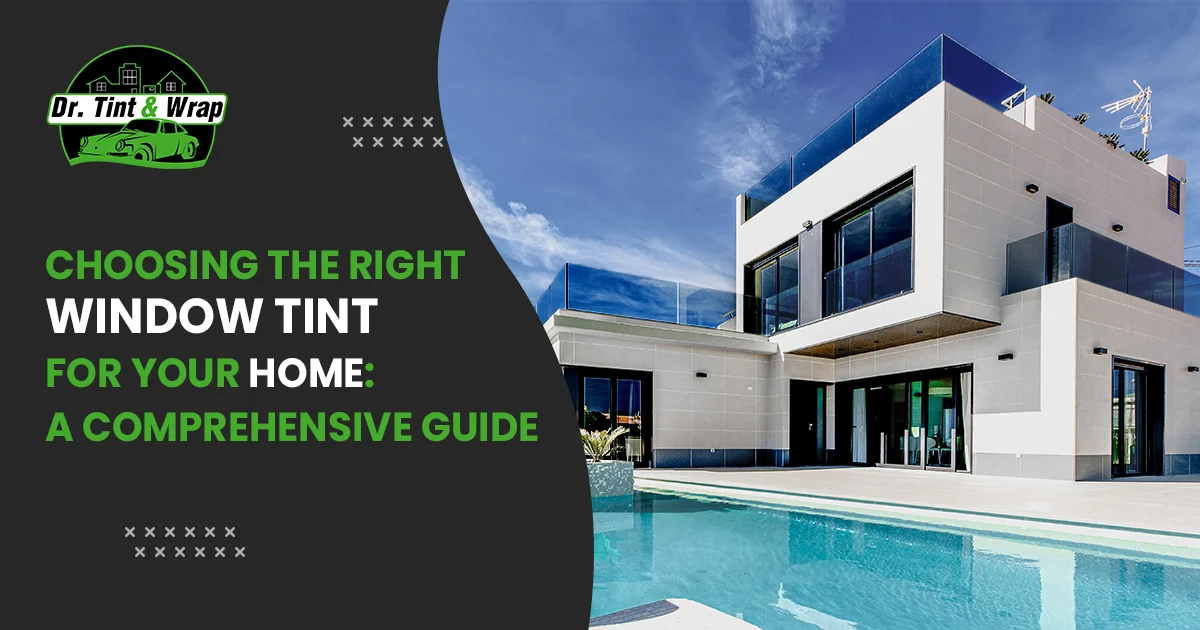
Understanding the Legal Aspects of Car Window Tinting in Tauranga
10 Jul 2023, By AdminCar window tinting has become a popular choice for vehicle owners in Tauranga, offering various benefits such as enhanced privacy, protection against harmful UV rays, and improved aesthetics. However, it is important to understand the legal aspects surrounding car window tinting to ensure compliance with local regulations. In this blog post, we will delve into the legal guidelines for car window tinting in Tauranga and provide you with valuable information to make informed decisions.
1. Familiarize Yourself with the Regulations
Before diving into car window tinting, it's crucial to be aware of the specific legal requirements in Tauranga. Each region may have its own set of regulations, so it's important to research and understand the guidelines specific to this area. Familiarize yourself with the allowable levels of tint darkness and reflectiveness to ensure compliance.
2. Light Transmission Laws
One of the key factors in car window tinting regulations is light transmission, often measured as a percentage. The lower the percentage, the darker the tint. In Tauranga, the allowable light transmission levels for car window tints may vary for different windows. For instance, the front windshield usually requires a higher light transmission compared to the rear windows. Understanding these variations is essential to avoid potential legal issues.
3. Visible Light Reflectance Limits
Apart from light transmission, Tauranga's regulations also impose limits on the amount of visible light reflectance that car window tints can have. Reflective tints can significantly impact the visibility of other drivers, potentially causing hazards on the road. Therefore, it's crucial to adhere to the specified limits to maintain road safety.
4. Certification and Compliance
When getting your car windows tinted in Tauranga, it's essential to choose a reputable service provider that uses tint films that comply with local regulations. Certified professionals will ensure that the tinting job meets the legal requirements, giving you peace of mind and minimizing the risk of penalties or fines.
5. Warranties and Documentation
To demonstrate compliance with the legal aspects of car window tinting, it's essential to keep the necessary documentation. This includes warranties for the tint films used and certificates of compliance provided by the service provider. These documents can serve as proof of compliance in case of inspections or any legal inquiries.
6. Regular Inspections and Maintenance
Even if your car window tints comply with the regulations at the installation time, it's important to maintain compliance in the long run. Regular inspections can help identify any issues such as peeling, bubbling, or fading of the tint film. If you notice any problems, promptly address them by consulting a professional to ensure that your car remains within legal limits.
Dr. Tint & Wrap excels in providing the finest car window tinting services in Tauranga, ensuring strict compliance with government laws for car window tinting in the area. Their expertise and attention to detail make them the top choice for anyone seeking professional car window tinting in Tauranga. Understanding the legal aspects of car window tinting in Tauranga is crucial to ensure compliance with local regulations and avoid potential penalties. By familiarizing yourself with the guidelines regarding light transmission, visible light reflectance, certification, and documentation, you can enjoy the benefits of window tinting while staying on the right side of the law. Remember to choose a reputable service provider, maintain proper documentation, and conduct regular inspections to ensure your car's window tinting remains in compliance with the law.

How to Maintain and Care for Tinted Office Windows
10 Jul 2023, By AdminOffice window tinting is a fantastic way to enhance the comfort and aesthetic of your workspace. Not only does it provide privacy and reduce glare, but it also helps in energy conservation by blocking harmful UV rays and controlling heat. However, to keep your tinted windows looking great and functioning effectively, proper maintenance and care are essential. Here’s a comprehensive guide on how to maintain and care for your tinted office windows.
Understanding Office Window Tinting
Before diving into maintenance tips, it’s important to understand what office window tinting involves. Window tints are thin films applied to the interior or exterior of glass surfaces. These films are designed to block UV rays, reduce heat and glare, and offer privacy without compromising natural light. High-quality window tints can last for many years, but their longevity largely depends on how well they are maintained.
Immediate Care Post-Installation
Allow Proper Curing Time
After installation, window tinting requires time to cure. This process can take anywhere from a few days to a few weeks, depending on the type of tint and the weather conditions. During this period:
- Avoid cleaning the windows.
- Do not roll down tinted windows (if applicable) to prevent peeling or damage.
- Expect minor haziness or small water bubbles, which will disappear as the film dries and adheres completely to the glass.
Regular Cleaning Tips
Use Gentle Cleaning Solutions
When it’s time to clean your tinted windows, opt for a mild, non-abrasive cleaning solution. A simple mix of water and a small amount of dish soap works well. Avoid ammonia-based cleaners as they can degrade the tint film over time.
Soft Clothes and Tools
Use a soft microfiber cloth or a rubber squeegee for cleaning. These materials are gentle on the tint film and help avoid scratches. Always dampen the cloth slightly before wiping the windows to prevent dry rubbing.
Gentle Cleaning Technique
- Spray the Solution: Lightly spray the cleaning solution onto the window surface.
- Wipe Gently: Using a soft cloth, gently wipe the window in a circular motion to remove dirt and smudges.
- Dry with Care: Use a dry microfiber cloth to gently pat the window dry, avoiding any streaks.
Preventing Damage
- Avoid Sharp Objects: Keep sharp objects away from tinted windows to prevent accidental scratches or tears. Office equipment, badges, or pens can cause damage if they come into direct contact with the window film.
- Temperature Considerations: Extreme temperatures can affect the adhesive properties of window tints. Avoid exposing tinted windows to excessive heat or cold. Ensure that window coverings or shades are used to moderate the temperature around the tinted windows.
- Regular Inspections: Periodically inspect your tinted windows for signs of wear and tear. Look for peeling, bubbling, or scratches. Early detection of damage can help in taking timely corrective actions, such as reapplying the tint film if necessary.
Professional Maintenance
- Regular Professional Cleaning: Consider scheduling regular professional cleaning services for your office windows. Professionals have the right tools and expertise to clean tinted windows without causing damage, ensuring they remain in optimal condition.
- Tint Reapplication: Over time, even the best-maintained tints may need reapplication. Depending on the quality of the tint and environmental factors, window tints can last between 5 to 15 years. Professional reapplication ensures that your office windows continue to provide the benefits of tinting.
Conclusion
Maintaining and caring for tinted office windows is not a daunting task if you follow the right steps. By using gentle cleaning methods, preventing damage, and scheduling professional maintenance, you can ensure that your office window tinting remains effective and aesthetically pleasing for many years. Remember, well-maintained tinted windows not only enhance the look of your office but also contribute to a more comfortable and energy-efficient workspace.

Why Paint Protection Film is the Ultimate Solution for Your Car
10 Jul 2023, By AdminOwning a car is a significant investment, and maintaining its pristine condition is a priority for many car enthusiasts. With various options available for car paint protection, choosing the right one can be challenging. Among these options, Paint Protection Film (PPF) stands out as the best choice. Here’s why Paint Protection Film is the ultimate solution for car paint protection.
- 1.Superior Protection Against Physical Damage:
Paint Protection Film offers unmatched protection against physical damage. It acts as a robust shield against minor abrasions, stone chips, scratches, and other debris that can cause unsightly damage to your car’s paintwork. The film’s durable and flexible nature ensures that the underlying paint remains untouched, preserving the car’s appearance and value. - 2.UV Protection:
Prolonged exposure to ultraviolet (UV) rays can cause your car’s paint to fade and oxidize over time. Paint Protection Film provides an effective barrier against harmful UV rays, preserving the vibrant color and glossy finish of your vehicle. This UV resistance ensures that your car looks newer for longer, even when exposed to harsh sunlight. - 3.Chemical Resistance:
Paint Protection Film is designed to resist a wide range of chemicals that can harm your car’s paint. From bird droppings and bug splatter to acid rain and tree sap, PPF prevents these substances from coming into direct contact with the paint, reducing the risk of staining and etching. This chemical resistance makes it easier to clean your car and maintain its flawless appearance. - 4.Preservation of Original Paint:
Unlike traditional paint protection methods that involve applying additional layers of paint or coatings, the Paint Protection Film preserves the original paint of your car. This is particularly important for vintage or high-end vehicles where maintaining the factory paintwork is crucial for their value. PPF ensures that the original paint remains untouched and in mint condition. - 5.Clear and Invisible Protection:
One of the biggest advantages of Paint Protection Film is its clarity. When applied correctly, PPF is virtually invisible, allowing the original color and finish of your car to shine through without any distortion. This means you can enjoy the benefits of superior protection without compromising on the aesthetic appeal of your vehicle. - 6.Long-Lasting Durability:
Paint Protection Film is designed to last for several years, offering long-term protection for your car. High-quality PPF can endure the rigors of daily driving, harsh weather conditions, and regular washing without deteriorating. This longevity means fewer reapplications and lower maintenance costs over the lifetime of your vehicle. - 7.Ease of Maintenance:
Maintaining a car with Paint Protection Film is straightforward. The film’s smooth surface repels dirt, dust, and grime, making it easier to clean. Regular washing and occasional waxing are usually enough to keep the film and the underlying paint in excellent condition. This ease of maintenance saves time and effort, allowing you to enjoy your car more and worry less about its upkeep. - 8.Customizable and Versatile Application:
Paint Protection Film can be applied to various parts of your vehicle, from the hood and fenders to the mirrors and bumpers. It can be customized to cover specific areas prone to damage or applied to the entire vehicle for comprehensive protection. This versatility ensures that you can tailor the level of protection to suit your needs and preferences. - 9.Enhanced Resale Value:
Finally, using Paint Protection Film can enhance the resale value of your car. A well-maintained exterior free from chips, scratches, and stains is more attractive to potential buyers. The presence of PPF indicates that you have taken diligent care of your vehicle, which can justify a higher asking price and facilitate a quicker sale.
Conclusion
In summary, Paint Protection Film offers an array of benefits that make it the best choice for car paint protection. Its superior defense against physical and chemical damage, self-healing properties, UV protection, and long-lasting durability ensure that your car remains in pristine condition. With its clear and invisible application, ease of maintenance, and customizable coverage, PPF stands out as the ultimate solution for preserving the beauty and value of your vehicle. Investing in Paint Protection Film is a smart decision for any car owner who wants to keep their car looking new for years to come.

Choosing the Right Window Tint for Your Home: A Comprehensive Guide
10 Jul 2023, By AdminWindows are the eyes of your home, providing natural light, ventilation, and a connection to the outside world. However, they can also be a source of problems, such as excessive heat, glare, and harmful UV rays. Window tinting offers a practical solution to these issues, but selecting the right window tint can be a daunting task. In this guide, we'll walk you through the process of choosing the appropriate window tint for your home based on your specific needs, climate, and window types.
1. Assess Your Needs:
Before diving into the world of window tinting, it's crucial to assess your specific requirements. Consider the following factors:
- Privacy: Do you need increased privacy without sacrificing natural light?
- Heat Reduction: Is your home excessively hot, especially during summer months?
- Glare Reduction: Do you struggle with glare from sunlight that affects your comfort and visibility?
- UV Protection: Are you concerned about fading furniture and flooring due to UV rays?
- Energy Efficiency: Are you looking to reduce energy costs by improving insulation?
2. Understand Different Types of Window Tints:
There are various types of window tints available, each designed to address specific issues:
- Solar Control Films: Ideal for heat and glare reduction, these films block UV rays and improve energy efficiency.
- Privacy Films: These tints provide privacy during the day while allowing natural light to enter your home.
- Security Films: Reinforce your windows for added security, protecting your home from break-ins and accidents.
- Decorative Films: Enhance aesthetics with decorative window films available in various patterns and designs.
3. Consider Your Climate:
The climate of your region plays a significant role in choosing the right window tint:
- Hot Climates: Opt for tints with high solar heat rejection and UV protection to keep your home cool and protect from sun damage.
- Cold Climates: Look for tints with insulating properties to retain indoor heat during winters, reducing heating costs.
4. Think About Window Types:
Different window types require different tinting solutions:
- Double-Pane Windows: Consult with a professional, as certain films can trap heat between the panes, potentially causing damage.
- Low-E Coated Windows: Use tints recommended by the window manufacturer to maintain the Low-E coating's effectiveness.
- Older Windows: Consider films that provide insulation, improving energy efficiency in older, less insulated windows.
5. Seek Professional Advice:
While there are DIY tinting kits available, consulting with a professional window tinting service is invaluable. They can assess your specific needs, recommend suitable products, and ensure proper installation, maximizing the tints' effectiveness and longevity.
6. Read Reviews and Get Samples:
Research online reviews and testimonials to learn about other homeowners' experiences with specific window tints. Additionally, request samples from manufacturers or service providers to physically see how different tints look and perform in your home environment.
7. Maintenance and Warranty:
Consider the maintenance requirements and warranty offered with the window tint. Some tints may require special cleaning methods to preserve their effectiveness, while others come with comprehensive warranties, ensuring long-term satisfaction.
In conclusion, choosing the right window tint for your home involves careful consideration of your specific needs, the climate you live in, and the types of windows you have. By understanding these factors and seeking professional guidance, you can enhance your home's comfort, energy efficiency, and overall aesthetics, making an informed choice that you'll appreciate for years to come.
